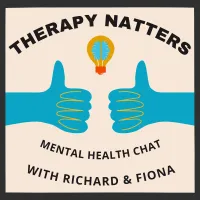
Therapy Natters
·S2 E21
Cognitive Dissonance
Episode Transcript
Sorry, but something went wrong while loading this transcript

·S2 E21
Sorry, but something went wrong while loading this transcript
Create a free account to sync, back up, and get personal recommendations.